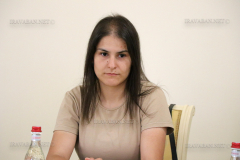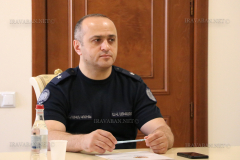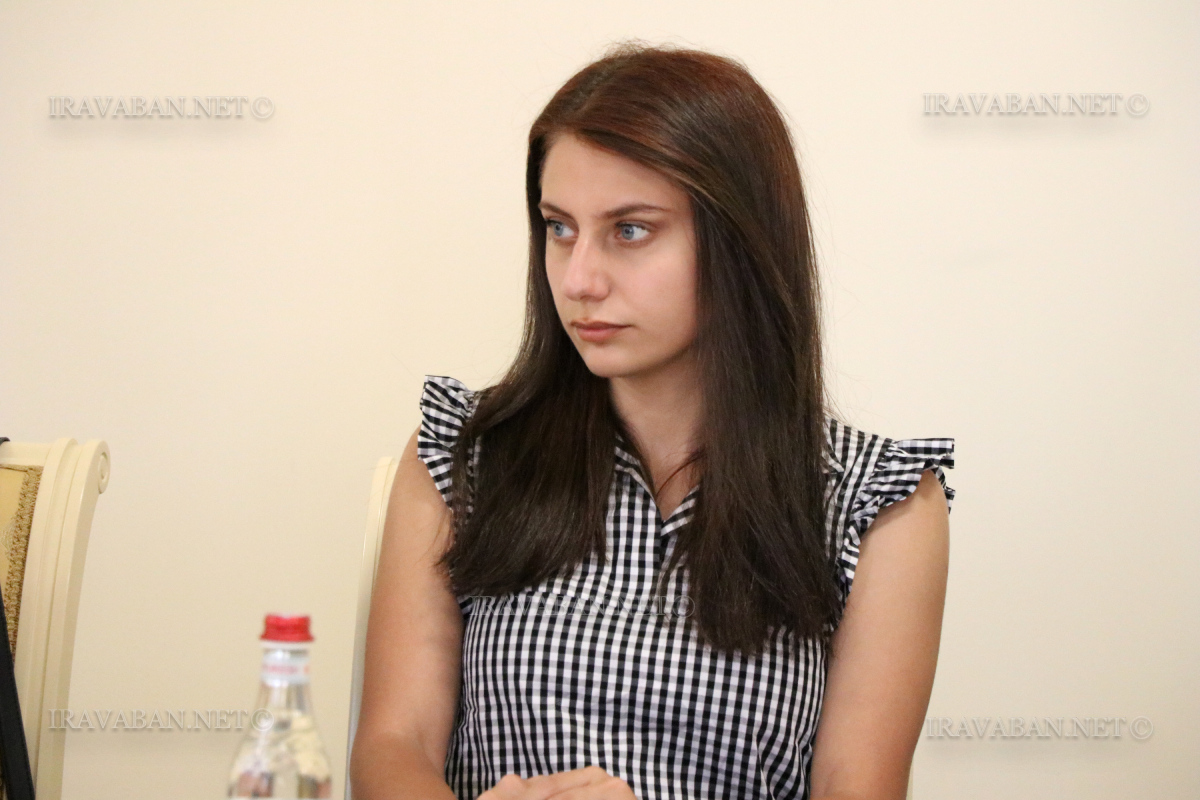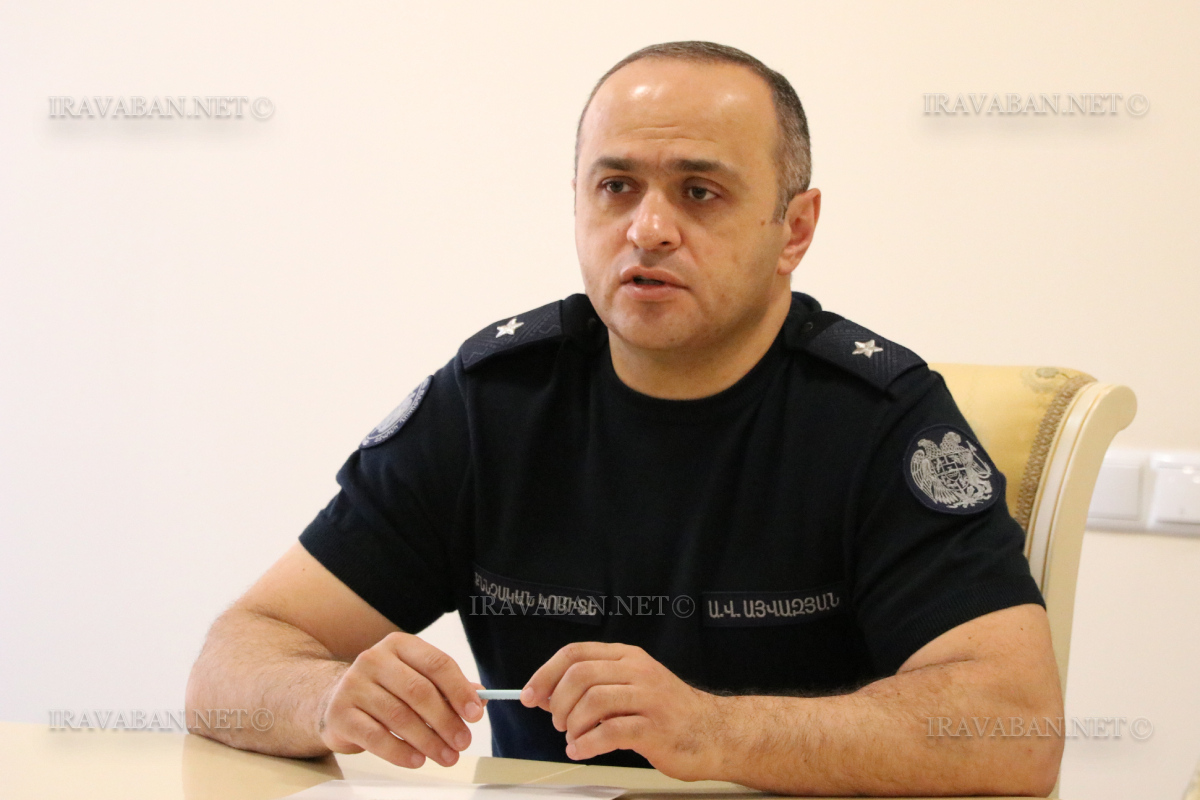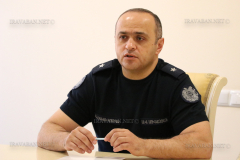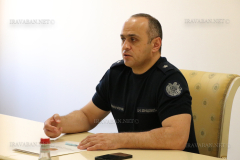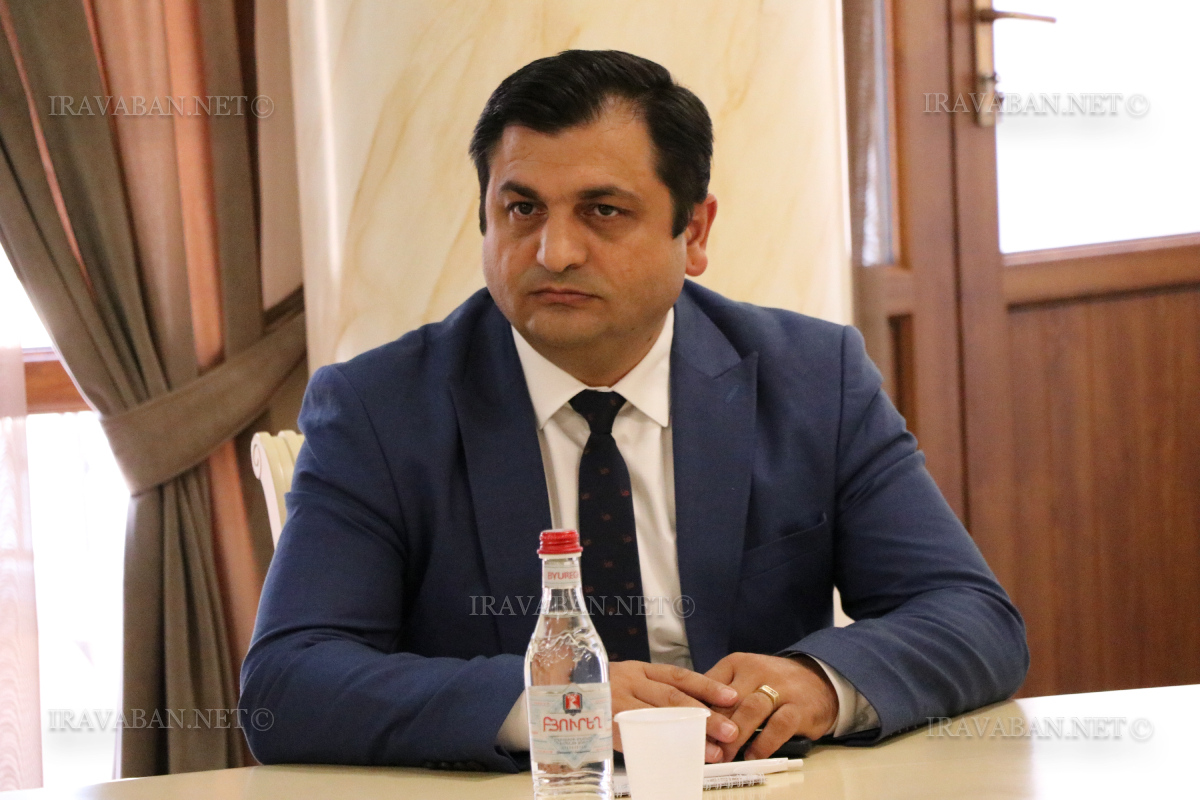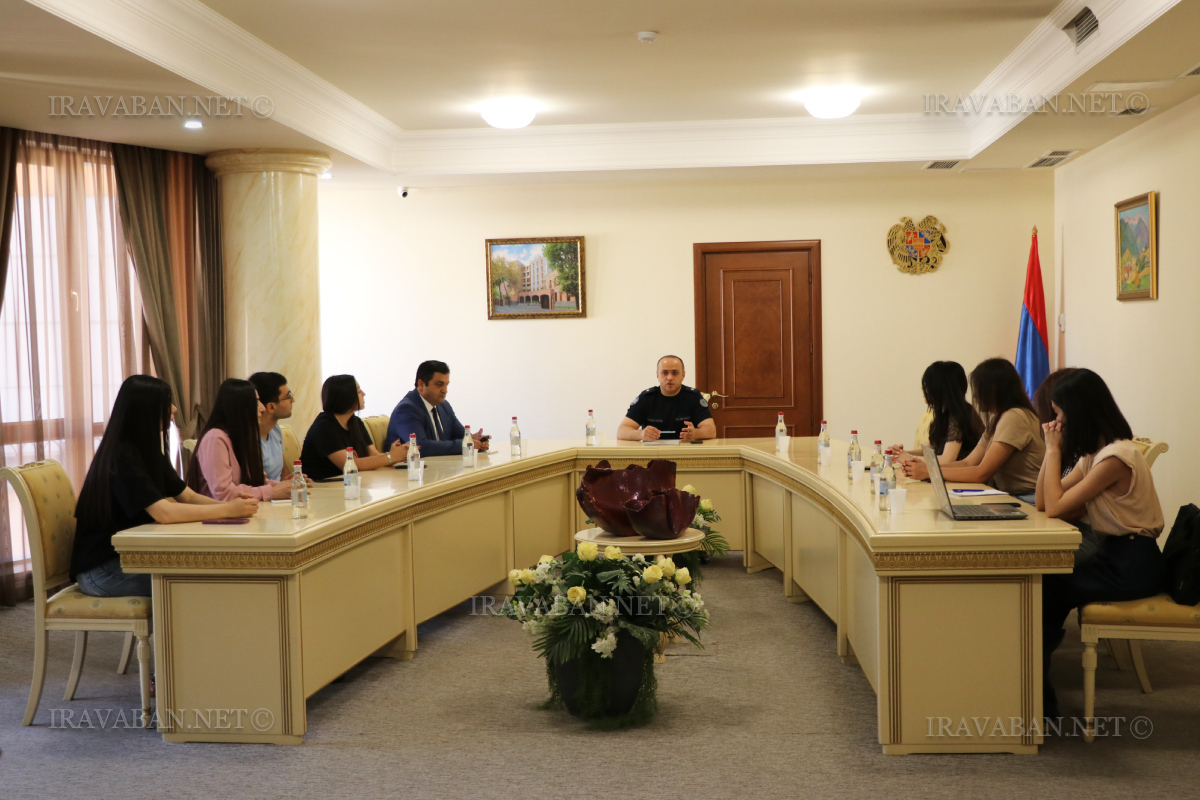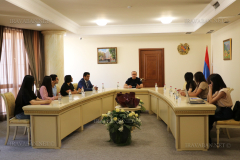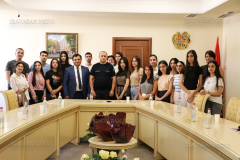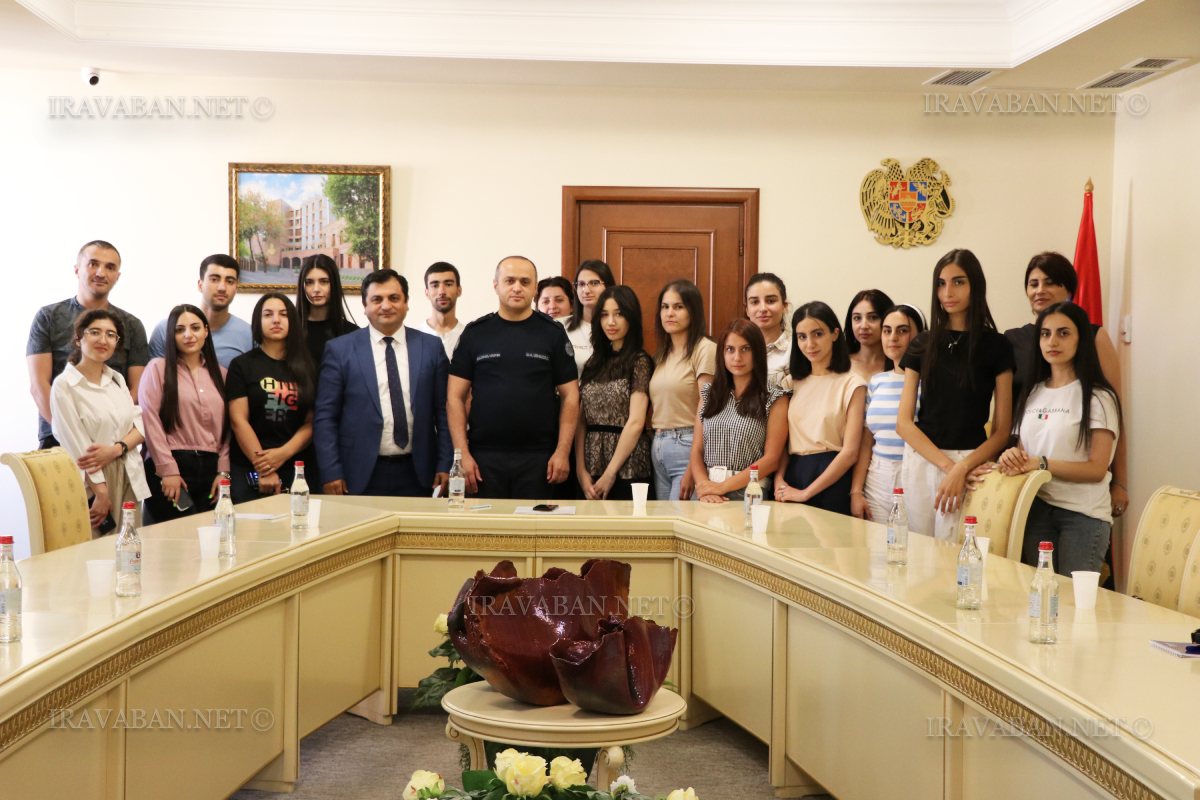
On 13 July, the students of the 9th stream of the Anti-Corruption School for Young Leaders, the 1st anti-corruption professional educational initiative operating in the Republic of Armenia, visited the Investigative Committee, where they met with Arsen Ayvazyan, the Deputy Chairman of the Investigative Committee.
An active discussion between the students and the Deputy Chairman of the Committee regarding the anti-corruption policy adopted by the IC, the role and priorities of the Committee in the fight against it took place.
Arsen Ayvazyan thanked the Armenian Lawyers’ Association, the school and the students for organizing and participating in this course. In his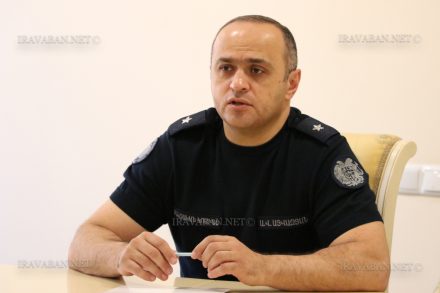 opinion, the existence of the Anti-Corruption School for Young Leaders and the involvement of the participants have an important role and significance in the prevention of corruption, “Now you are participating in prevention. Raising legal awareness is the most important thing in this area. The psychology of paying bribes must be eradicated. We need fighters like you in the fight against corruption.”
opinion, the existence of the Anti-Corruption School for Young Leaders and the involvement of the participants have an important role and significance in the prevention of corruption, “Now you are participating in prevention. Raising legal awareness is the most important thing in this area. The psychology of paying bribes must be eradicated. We need fighters like you in the fight against corruption.”
He noted that from 1 January, 2024, the investigative body of the National Security Service will join the Committee, as it was done in the case of the investigative body of the State Revenue Committee. After that, RA will have only 2 investigative bodies. The Anti-Corruption Committee and the Investigative Committee.
“Temporarily, the investigation of cases related to corruption crimes has been assigned to the Investigative Committee. Although there is an Anti-Corruption Committee, we are still actively fighting against corruption crimes. After 1 January, 2024, new proceedings in corruption cases will not be initiated in the Investigative Committee, the work on the proceedings initiated until then will continue. During that time, I am sure, the Anti-Corruption Committee will be fully formed, it will stand firmly on two legs, although today they still show quite good indicators”, Arsen Ayvazyan said, and added that only in the first quarter of this year, 738 proceedings of criminal cases regarding corruption were investigated in the IC.
According to statistics, 1744 such proceedings were examined in 2021, and 1218 in 2022.
The Deputy Chairman of the Investigative Committee also spoke with the students about the policy adopted by the Committee in the case of money laundering and the investigation of such cases. The crime of “money laundering” included in corruption crimes can be investigated in the Criminal Investigation Department even after 1 January, 2024. According to Arsen Ayvazyan, in this way, an attempt is made to speed up the disclosure of cases related to money laundering.
“Money laundering is considered a 2nd degree crime. In order for us to prove that money laundering has taken place, we must also find out about the acquisition of “dirty money”. At present, it is not appropriate to send the whole case to the Anti-Corruption Committee, because of this one article. We have taken the initiative and everyone agrees that in the case of the primary crime investigation and in the event of the discovery of money laundering, the body that found it will continue to investigate,” the Deputy Chairman of the Investigative Committee said.
Arsen Ayvazyan also spoke about the manifestations of corruption in the investigative system and noted that raising the salaries of investigators also has a positive effect in the fight against corruption.
Alisa Harutyunyan, one of the students of the school, wondered whether raising salaries is the primary step that the Investigative Committee should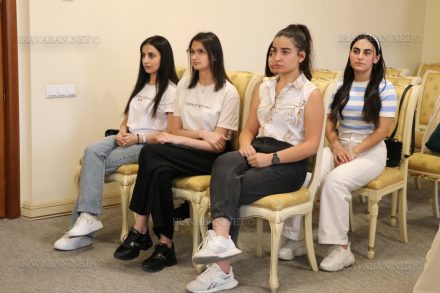 take, “What other steps should be taken to solve the problem?”
take, “What other steps should be taken to solve the problem?”
Arsen Ayvazyan agreed that increasing the salary alone is not a sufficient, but it is one of the important preconditions.
” For example, years ago, one of the investigators took a 1000 USD bribe and bought a computer for his work and brought it to his office to make the investigator’s work more efficient. Today, there is no investigator who does not have a computer or other necessary items provided by the state. In the past, there was a lack of it, and the risk of corruption was also high. The investigator’s social guarantees should be ensured so that he does not think about corruption,” Deputy Chairman of the Investigative Committee emphasized.
The students also inquired from Arsen Ayvazyan about the work being done in the field of cybercrime and the reduction of the latency of crimes.
Notably, the training in the Anti-Corruption School for Young Leaders will be organized in the following phases:
- ONLINE TRAINING PHASE, during which the students will pass a basic anti-corruption course consisting of 25 topics through the school’s online anti-corruption training platform. Those students who have completed all the knowledge test questionnaires and received the appropriate points for completing the online training will be considered completed the online training phase.
- MASTER CLASS AND PRACTICAL SKILLS DEVELOPMENT PHASE, during which students who have successfully completed the advanced stage of school will be divided into groups and each group will conduct a study, monitoring or investigation on one of the in-depth anti-corruption topics. During this phase, the work will be organized in the form of group meetings, discussions, and meetings with representatives of the sectors and other relevant bodies and organizations. Attendees will learn a range of innovative tools and gain related skills. At this stage, mentoring for groups is planned.
- PUBLIC AWARENESS PHASE, during which students who have successfully completed the practical skills development phase of the school will have the opportunity to disseminate their anti-corruption knowledge among young people through public awareness seminars.
- ADVANCED TRAINING PHASE, during which the best 15-20 participants who have achieved high results in the online training phase of the school, successfully completed the in-depth interview phase and are selected, will participate in the outreach (out of Yerevan) in-depth anti-corruption training. The in-depth training phase of the school will consist of the modules: “Anti-Corruption Advanced Training” and “Pillars of National Identity”.
- FINAL PHASE, during which the students who have successfully completed the practical skills development and public awareness stages of the school, will present their research and public awareness results to the reputable jury and the public.
Students who have passed and successfully graduated from all five phases of the School will be awarded GRADUATION CERTIFICATES of Anti-Corruption School for Young Leaders.
“The Armenian Lawyers’ Association” NGO is organizing the Anti-Corruption School for Young Leaders in cooperation with the CSO Anti-Corruption Coalition of Armenia.
The information partner of the Anti-Corruption School for Young Leaders is Iravaban.net, independent professional news website.




